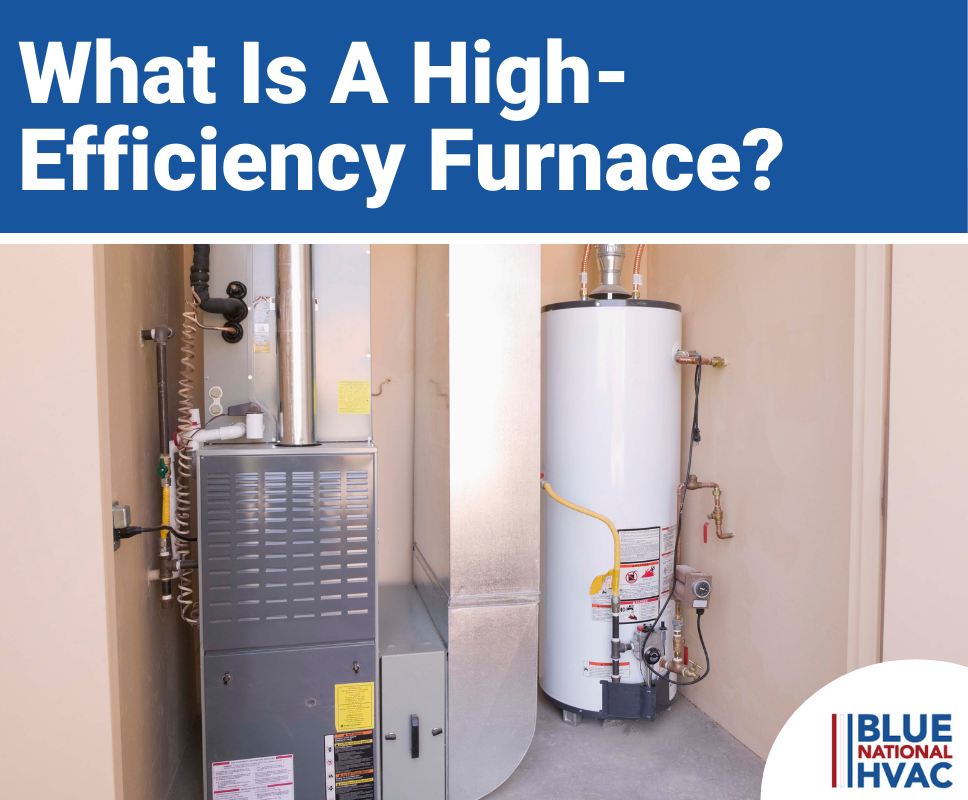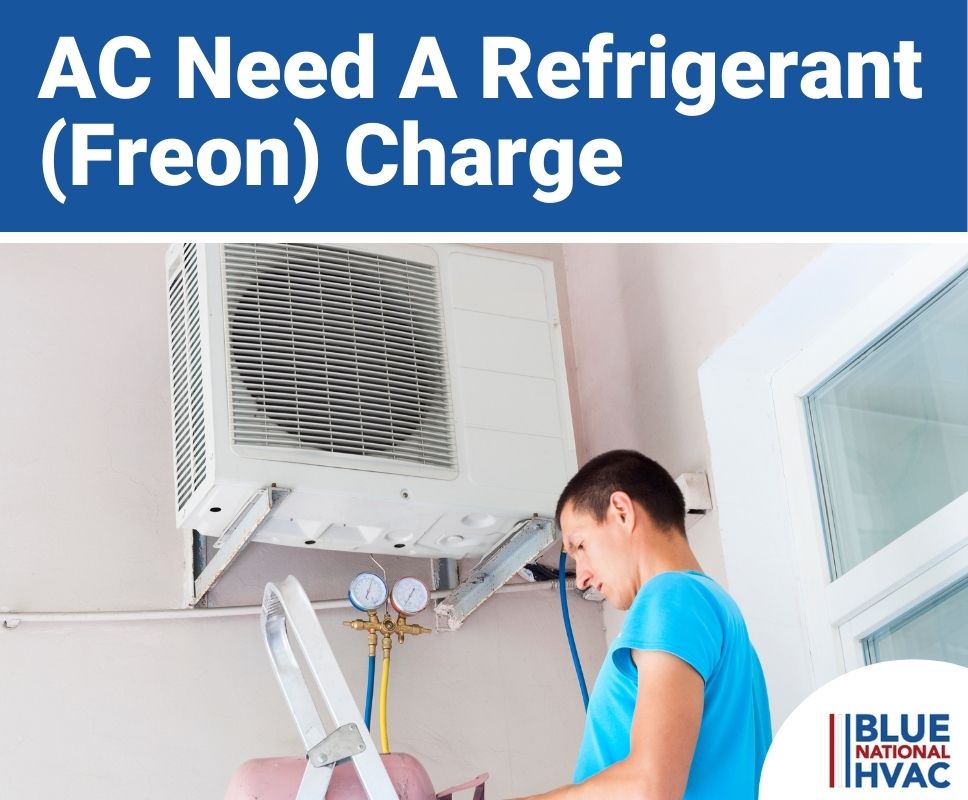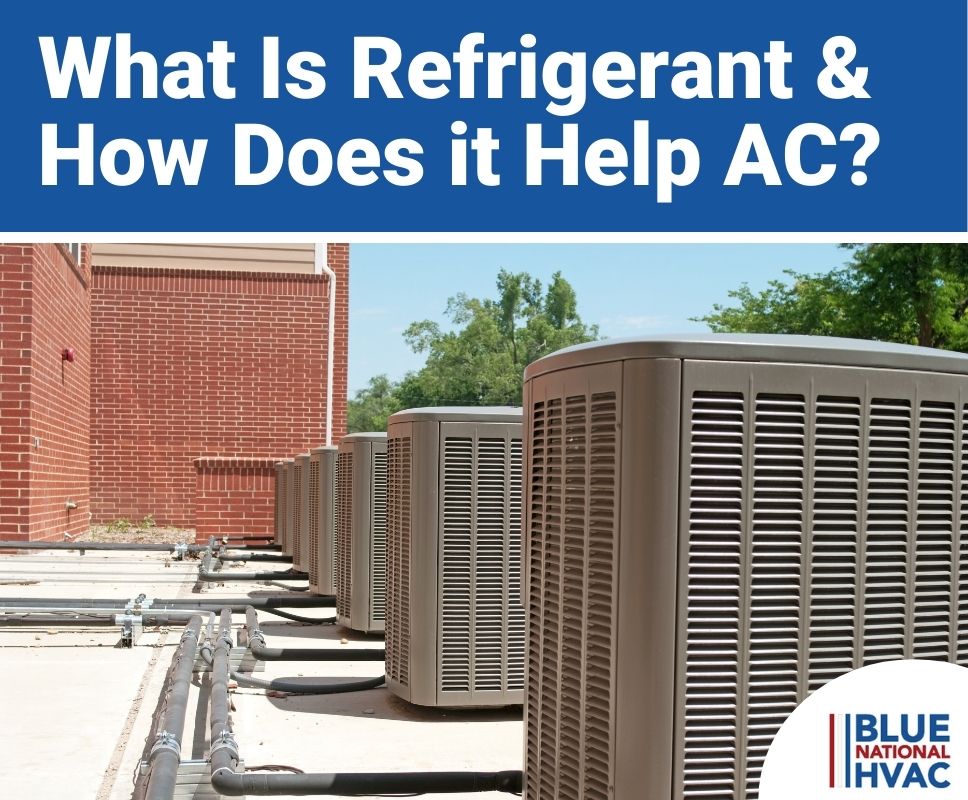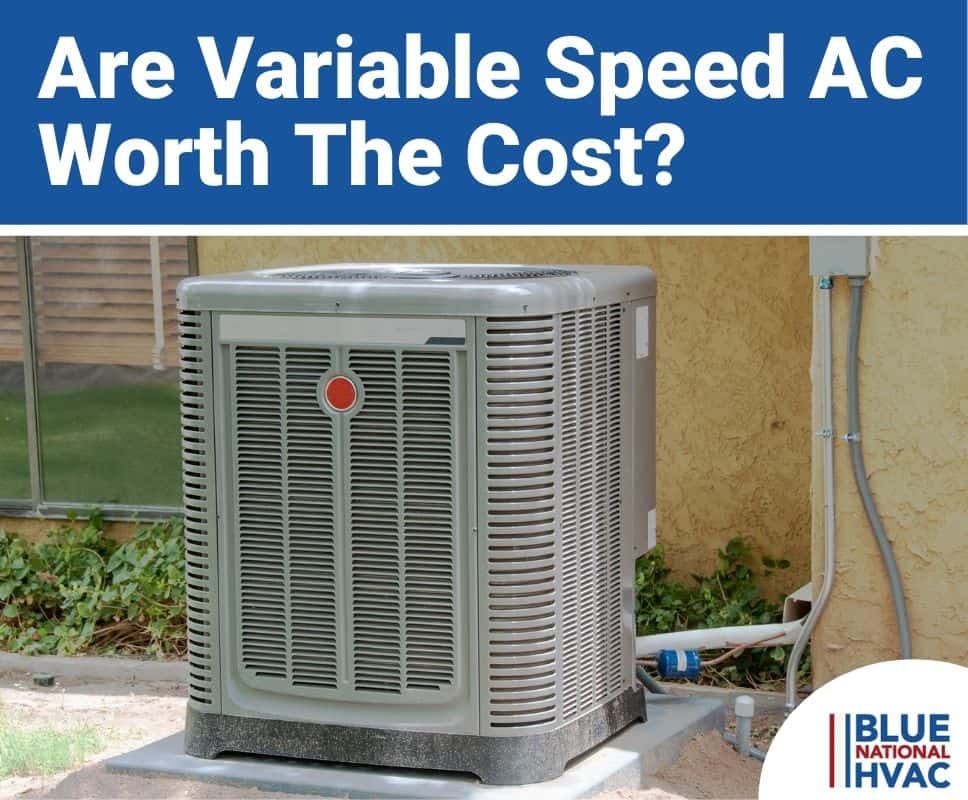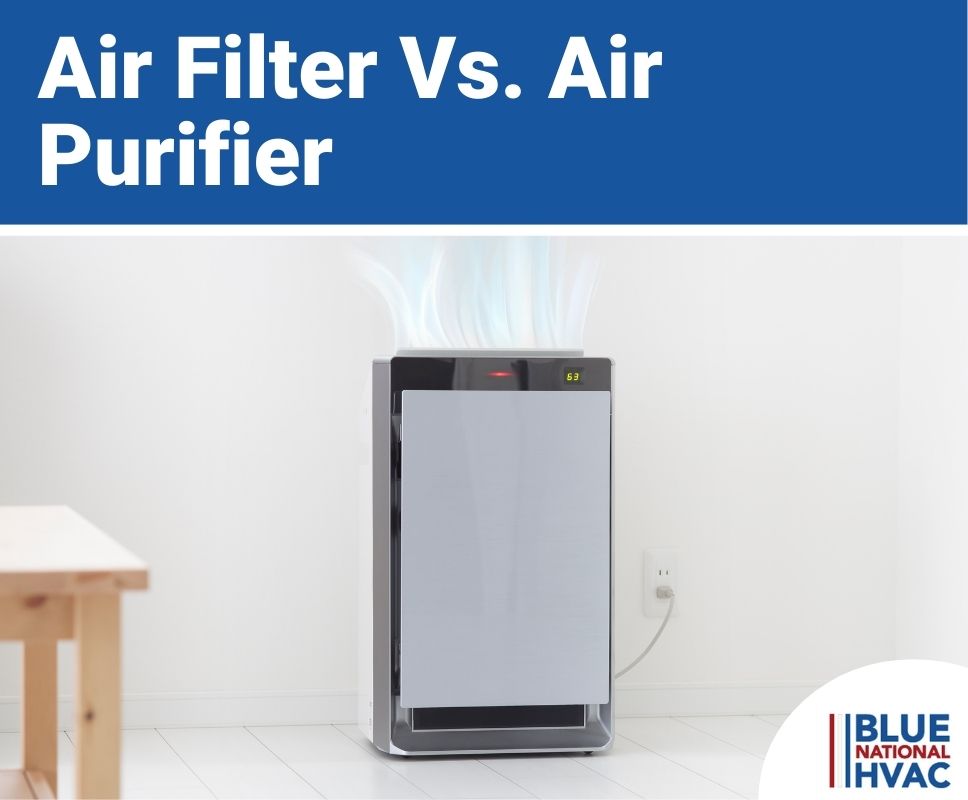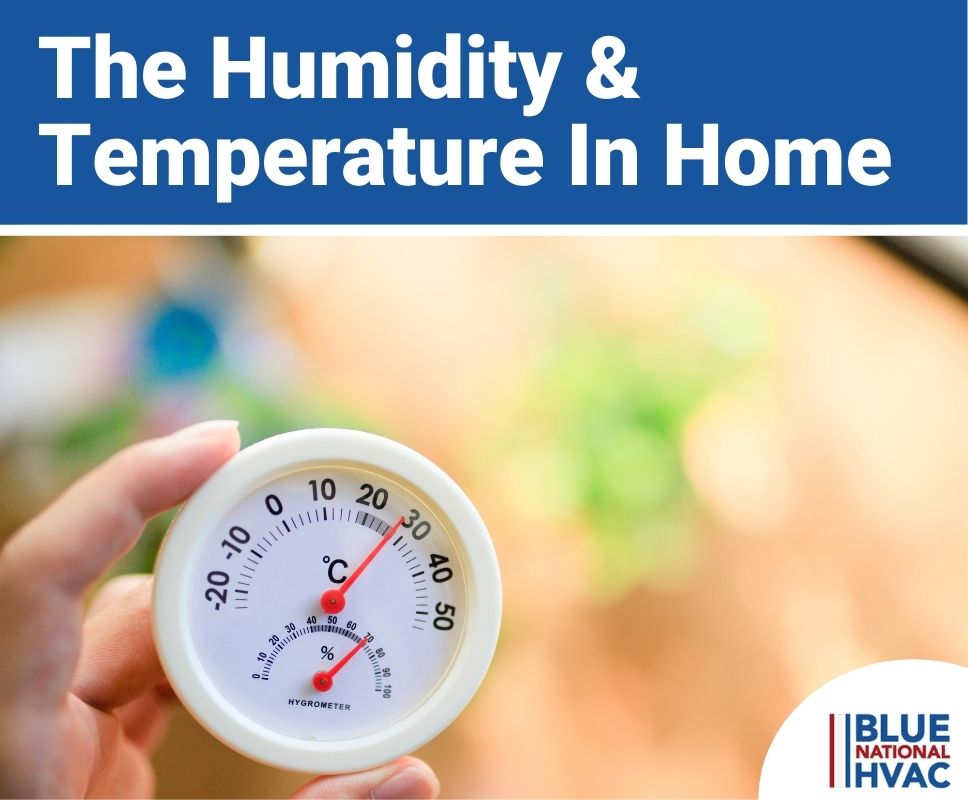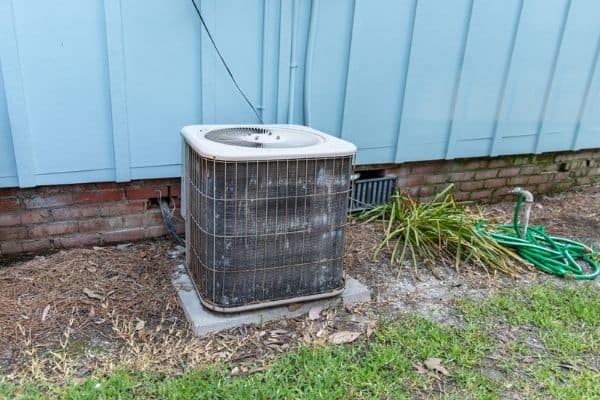What Makes a High-Efficiency Furnace so Efficient?
One of the most important components of a home comfort system is the furnace. It circulates warm air throughout the living spaces and helps to maintain comfortable room temperatures during the coldest days of the year.
Furnaces have been around for decades and there have been noticeable improvements in their efficiency over that time. Today, they are the most efficient residential heating system available. While some homeowners are content with their current furnace, many may be considering a high-efficiency natural gas furnace for their next furnace replacement.
We define “high-efficiency” for residential furnaces as any with an AFUE rating above 90%. But first, let’s explain how furnace efficiency is measured.
Annual Fuel Utilization Efficiency (AFUE)
Every furnace has an efficiency rating, and it is measured with AFUE. AFUE is the ratio of the heat output of the furnace versus the amount of fuel it uses over the course of a year. As an example, a furnace with a 90% AFUE rating means 90% of the fuel it uses is converted to heat, and 10% is lost through the flue exhaust.
In the United States, the Department of Energy regulates the minimum efficiency of furnaces. All furnaces sold into the US must be of at least 80% AFUE. This minimum rating is relatively recent, and many older furnaces have only a 70% AFUE rating.
As you might have gathered, furnaces with lower AFUE ratings have higher heating costs than those with higher AFUE ratings.
Maximum AFUE Ratings
The maximum AFUE rating on high-efficiency air conditioners is nearly 99% AFUE! This means that almost all of the energy from burning natural gas goes directly toward heating your home. Therefore, the monthly heating bills of the house will be significantly reduced and will place less burden on the environment.
Factors That Affect Furnace Efficiency
The main reason that high-efficiency furnaces are so efficient is that they are designed to have the best performance possible. This means they have some of the best components to produce heat for your home without wasting any fuel!
The main three factors that make high-efficiency furnaces so efficient are secondary heat-exchangers, the number of heating stages, and their blower speeds.
Condensing Furnaces
Condensing furnaces use secondary heat exchangers to heat air better than non-condensing furnaces. Non-condensing furnaces have just one heat exchanger. In the combustion process, once the burned fuel and combusted air heats the heat exchanger, it is exhausted outside through the flue (a PVC pipe, chimney-like exhaust tube).
However, the secondary heat exchangers in condensing furnaces gather the excess heat from the exhaust gases in a sealed combustion chamber and pump it into the home. They have a special venting flue for this purpose. Since they recover more heat from combustion, they are more commonly used in high-efficiency furnaces.
Number of Stages
Another critical factor that affects the efficiency of furnaces is their number of stages. Today, furnaces come is three different stage options:
- One-stage or single-stage furnaces
- The gas valve only runs at 100% output or off
- Least energy efficient
- Runs 10 to 15 minutes at a time, multiple times an hour
- May inconsistently heat homes, leaving “cold spots” and “hot spots”
- Dual-stage or two-stage furnaces
- The gas valve has two settings, 60/70%, and 100% output
- Middle of the road energy efficiency
- Run at the lower setting (60% or 705) for longer periods and use less energy
- Provides a more even temperature to the home since it runs at lower speeds for longer
- Variable-speed or modulating furnaces
- The gas valve can operate from 40-100% in 1% increments
- Highest energy efficiency
- Runs for long periods are low speeds and can ramp up to meet increased heating demands
- Provides the highest level of comfort in homes
On most days, a furnace running at lower speeds for long periods is enough to keep your home warm and toasty. It is also more energy-efficient when it runs longer. Therefore, variable speed furnaces have much better efficiencies than single-stage and two-stage units. As such, most high-efficiency furnaces are modulating units.
Fan Speed
The final factor of a furnace that affects its efficiency is the type of blower motor it uses. The blower circulates the heated air through your ductwork and into the rooms of your home. Similar to the furnace stages, there are three standard options for fan speeds on furnaces:
- Single-speed – the fan or blower runs at only 100%
- Multi-speed – the blower has three speed settings, usually around 40%, 70%, and 100% of full capacity
- Variable speed – the blower can ramp up or down in 1% increments anywhere between 30 to 100% of capacity
High-efficiency furnaces usually have a variable speed blower or, at the very least, a multi-speed one to vary the airflow based on the heating demand.
Is Higher Efficiency Better?
Yes, absolutely! High-efficiency furnaces are in all ways better than lower-efficiency furnaces. However, one can argue that they are more expensive and therefore not “better” in all aspects.
In all other areas, higher efficiency furnaces are better, and they’ll save you a ton of money on your yearly energy bills as well! If you’re replacing an old unit, your new furnace will not only improve the comfort of your home but will increase your energy savings too.
What Are the Options?
There are many options for high-efficiency natural gas furnaces that homeowners can choose. They include:
- Brand and model – top brands include Trane, Carrier, Bryant, Lennox, Daikin, Rheem, Goodman, American Standard, Blueridge, and more
- Stages of heating – single-stage, two-stage, or modulating
- Fan speed – single-speed, multi-speed, or variable speed
- AFUE rating – available up to 98.5% AFUE
- Miscellaneous – smart thermostat, humidifiers, communication options, and more
What Are Energy Star Furnaces?
When a high-efficiency furnace has an “ENERGY STAR” approval, that means it meets the stringent efficiency metrics set by the U.S. EPA (Environmental Protection Agency). It is essentially a stamp of approval that the furnace you are getting is designed to be energy conscious and the most efficient design possible to reduce carbon pollution.
How Much Do High-Efficiency Furnaces Cost?
The pricing of a high-efficiency furnace will vary primarily depending on the brand, models, heating stages, and blower speed.
On average high-efficiency furnaces with AFUE ratings between 90 and 95% cost $1,000 to $3,000. The most efficient models with AFUE of 96% or greater cost around $2,000 to $6,000 on average.
Installation costs vary by region, with most homeowners paying somewhere in between $3,500 and $6,500. The install costs will vary depending on whether your old furnace needs to be removed and where it is installed. For example, a furnace in a crawl space will take more work to install than a furnace in a garage because it is harder to get to.
Keep in mind, the higher efficiency you have, the greater your heating bills will be reduced.
Any Furnace System Should Be Professionally Installed
For homeowners planning to install a high-efficiency furnace in their home, they should always hire one of our experienced HVAC technicians to get the job done right. Even if you consider yourself “handy,” new furnace installation is one of the toughest and most technical jobs around.
At Blue National HVAC, our trusted technicians have years of experience, technical aptitude, proper tools, and training to make sure your furnace installation is completed safely and correctly. They will install all furnaces with care and professionalism to ensure your home’s heating needs are met.
If you need help selecting a type of furnace efficiency that is best for you, or need assistance with an installation, give our HVAC team a call today!

